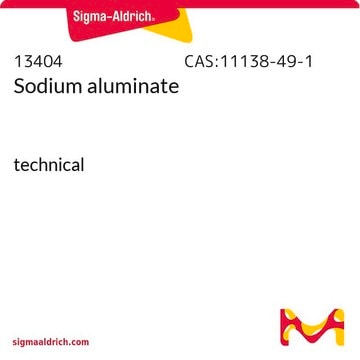225568
Tetrapropylammonium bromide
98%
Sinónimos:
N,N,N-Tripropyl-1-propanaminium bromide
About This Item
Productos recomendados
Quality Level
assay
98%
form
crystals
SMILES string
[Br-].CCC[N+](CCC)(CCC)CCC
InChI
1S/C12H28N.BrH/c1-5-9-13(10-6-2,11-7-3)12-8-4;/h5-12H2,1-4H3;1H/q+1;/p-1
InChI key
BGQMOFGZRJUORO-UHFFFAOYSA-M
¿Está buscando productos similares? Visita Guía de comparación de productos
General description
Application
- ZSM-5 zeolite, which is a major catalyst in the petroleum and fine chemical industries.
- Microporous and mesoporous materials that have potential applications in electronics (conducting polymers) and catalysis.
Storage Class
11 - Combustible Solids
wgk_germany
WGK 3
flash_point_f
Not applicable
flash_point_c
Not applicable
ppe
dust mask type N95 (US), Eyeshields, Gloves
Certificados de análisis (COA)
Busque Certificados de análisis (COA) introduciendo el número de lote del producto. Los números de lote se encuentran en la etiqueta del producto después de las palabras «Lot» o «Batch»
¿Ya tiene este producto?
Encuentre la documentación para los productos que ha comprado recientemente en la Biblioteca de documentos.
Los clientes también vieron
Nuestro equipo de científicos tiene experiencia en todas las áreas de investigación: Ciencias de la vida, Ciencia de los materiales, Síntesis química, Cromatografía, Analítica y muchas otras.
Póngase en contacto con el Servicio técnico












